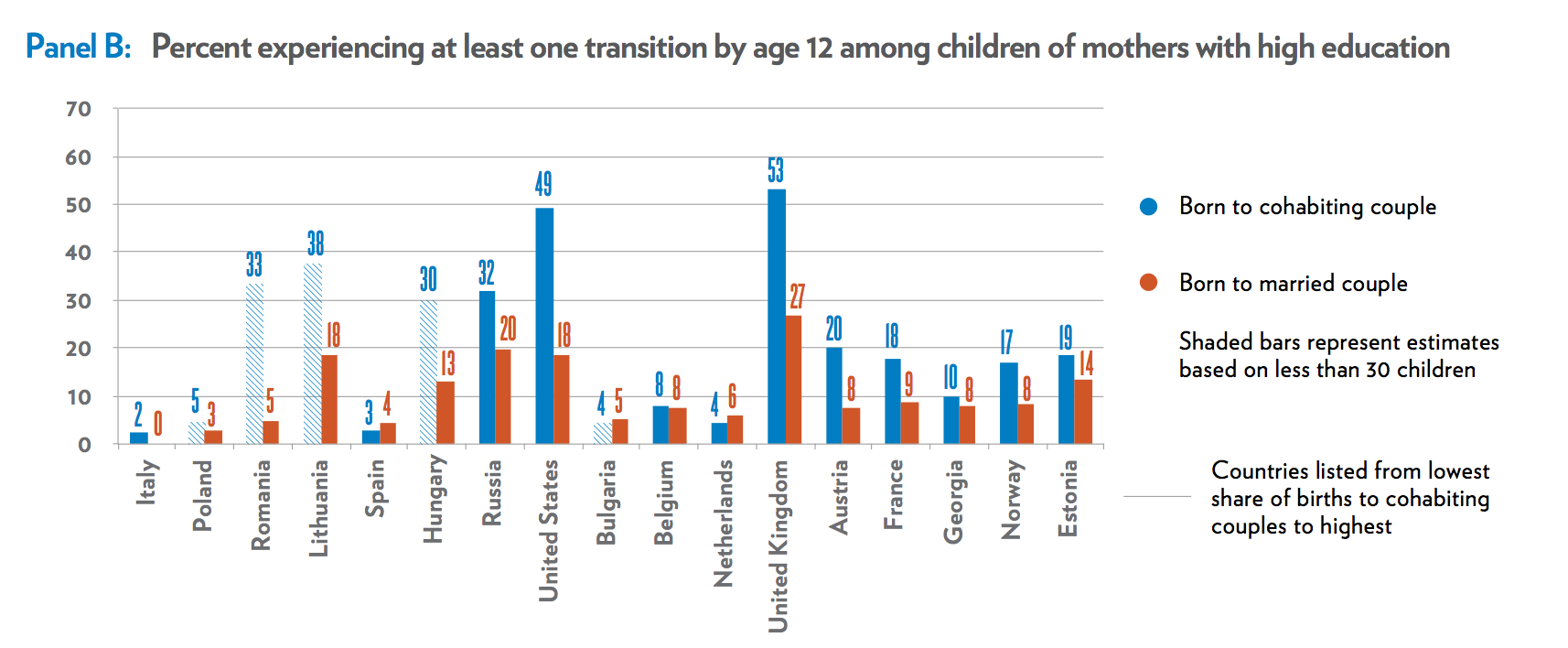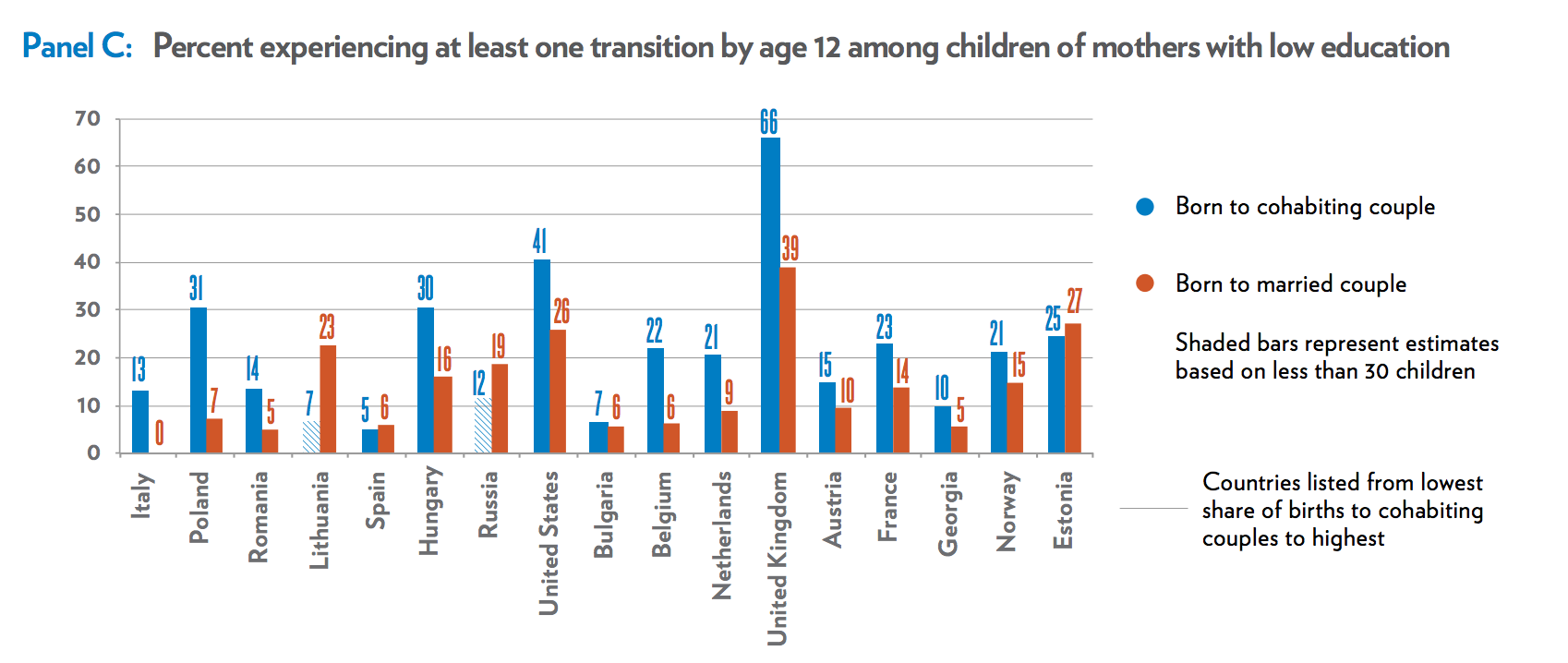This new study shows how important it is for kids to have married parents
When it comes to family instability, economics isn't the only factor that counts


A free daily email with the biggest news stories of the day – and the best features from TheWeek.com
You are now subscribed
Your newsletter sign-up was successful
Every society's holiest duty is ensuring that all its children thrive to the greatest extent possible. But while almost everyone will agree in a bland way that it's important to care for our children, it's striking how little our kids feature in our national political debates.
What helps children thrive? When it comes to answering this question, we can — and must — disagree in good faith.
But there is an emerging scientific consensus about a few things that, regardless of how you feel or what you believe, really do help children thrive, and one of them is family stability. A growing body of sociological findings strongly suggest that family instability has negative effects on children reaching well into adulthood, from perceived well-being to educational attainment to income.
The Week
Escape your echo chamber. Get the facts behind the news, plus analysis from multiple perspectives.

Sign up for The Week's Free Newsletters
From our morning news briefing to a weekly Good News Newsletter, get the best of The Week delivered directly to your inbox.
From our morning news briefing to a weekly Good News Newsletter, get the best of The Week delivered directly to your inbox.
To wit: The Institute for Family Studies and the Social Trends Institute just released their 2017 World Family Map, a fascinating look at family trends all across the developed world, drawing on data from more than 60 countries.
One of the report's key findings? A link between cohabitation — when two unmarried people live together — and family instability.
This is highly interesting. A common refrain when discussing family instability is that parents' education and economic status is the most important criterion for family instability. Poorer and less educated parents are more likely to break up, and wealthier and more educated parents more likely to stay together. The implication is that to promote stable families, policies should focus on economic and social aid, rather than on trying to strengthen the institution of marriage.
Indeed, we typically read about how well-to-do cohabiting families in places like Sweden and France are just as stable as any other. During the 2007 French presidential election, left-of-center American publications gushed about the fact that the Socialist presidential candidate, Ségolène Royal, was cohabiting with her partner, François Hollande (who would go on to run as well, and be elected to the presidency), with whom she raised four children. They were mostly silent when the couple announced their breakup right after the election.
A free daily email with the biggest news stories of the day – and the best features from TheWeek.com
This new research finds that children born to cohabiting couples in the United States and Europe are much more likely to see their parents break up before they turn 12 than are children born to married couples. Indeed, in 17 European countries and in the United States, highly educated cohabiting couples with children are typically more likely to break up than less-educated married couples with children. This suggests that educational status and economics aren't the whole ball game. In 68 countries across the globe, the rise in the share of children born to cohabiting couples is associated with increased family instability for children, the report says. The effect is present even for famously progressive countries like France. In the U.S., according to the report, among children whose mothers have high education levels, 49 percent of children in cohabiting families will experience a breakup in the family, compared to just 18 percent of children whose parents are married. And even highly educated cohabiting parents in the U.S. experience higher levels of breakups (49 percent) than do less-educated married parents (26 percent).


It's important to note that this study doesn't "prove" any causal link between cohabitation and family instability. Studies that rely on correlations between different factors cannot prove a causal link between them. Perhaps parents cohabiting rather than getting married causes them to have a greater propensity to break up. Or perhaps parents with a higher propensity to end up breaking up are less likely to get married and more likely to cohabitate to begin with.
But even though the "why" is up for debate, the facts are still startling, and should cause us to pause and think. The point about educational status, in particular, is important: The vaguely pseudo-Marxist idea that our family and life outcomes are entirely driven by economics is not credible; values, norms, and institutions also matter.
Studies such as this one bolster the case that we should be protecting families through a social-legal institution that makes it harder to break up our children's lives.
Pascal-Emmanuel Gobry is a writer and fellow at the Ethics and Public Policy Center. His writing has appeared at Forbes, The Atlantic, First Things, Commentary Magazine, The Daily Beast, The Federalist, Quartz, and other places. He lives in Paris with his beloved wife and daughter.
-
 ‘Poor time management isn’t just an inconvenience’
‘Poor time management isn’t just an inconvenience’Instant Opinion Opinion, comment and editorials of the day
-
 Bad Bunny’s Super Bowl: A win for unity
Bad Bunny’s Super Bowl: A win for unityFeature The global superstar's halftime show was a celebration for everyone to enjoy
-
 Book reviews: ‘Bonfire of the Murdochs’ and ‘The Typewriter and the Guillotine’
Book reviews: ‘Bonfire of the Murdochs’ and ‘The Typewriter and the Guillotine’Feature New insights into the Murdoch family’s turmoil and a renowned journalist’s time in pre-World War II Paris
